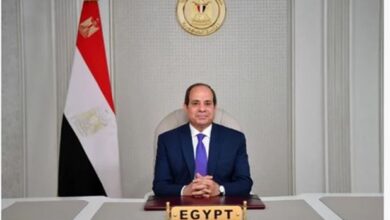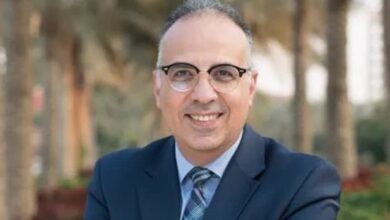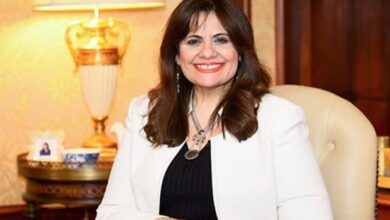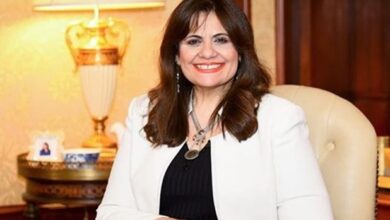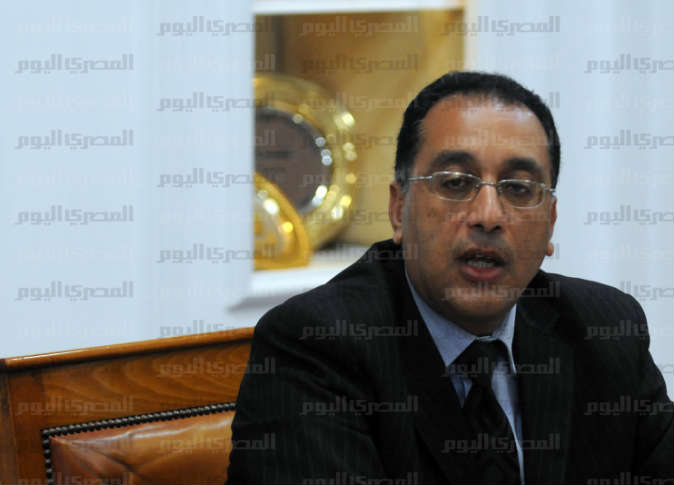
Housing Minister Mostafa Madbouly has stressed that there is no chance that the million-home project, adopted 18 months earlier, would be entrusted to UAE company Arabtec. He did note, however, that negotiations were underway with the company to task it with the implementation of 100,000 housing units over five years. If the company shows commitment to this project, it could be assigned with a further phase of the construction.
The minister told Al-Masry Al-Youm, on the sidelines of his sponsorship of the 20th Euromoney Conference, that the first phase of the new administrative capital seeks to relocate ministries from Downtown Cairo and Qasr al-Aini Street to the new capital. President Abdel Fattah al-Sisi will announce details for the first phase of the project soon.
The first phase, according to Madbouly, includes a government district, the biggest central park in the Middle East, a business and finance district and a mall. The first stage of an expo will also be included, with the Egyptian Expo and Convention Authority relocating to that area. The project’s first phase will also host an international medical center.
Q: There has been a state of ambiguity surrounding the new administrative capital, especially following the signing of a new MoU during President al-Sisi’s recent visit to China. What are the real developments on the ground?
A: We stress that the state will be in charge of the implementation and management of the new administrative capital through a legal entity to be created for that purpose.
Q: What about the project’s master plan?
A: We are already done with the plan for more than 10,000 acres and final touches are being made to studies on utilities and infrastructure. A detailed calculation of costs has also been prepared for that stage, coinciding with arrangements to offer bids, which will then be followed by the marketing process.
Q: What about the MoU signed during the president’s visit to China?
A: Actually, we held three meetings with the Chinese corporation ahead of the visit and there was much communication between us to prepare for the signing. That company is the world’s number one contractor and it possesses technology that will enable it to implement its tasks within record time, which will answer to President al-Sisi’s directives to finish the first stage of the capital within two years.
The MoU stipulates that the Chinese corporation will play a supporting role to other companies assigned with construction. We agreed that its foreign workforce will not exceed the number permissible by Egypt’s labor laws. We also agreed that the company will draw on US dollar funding for any foreign financing related to its work, particularly for work carried out on administrative towers.
Q: Any more details concerning the companies tasked with execution?
A: When the project was first announced, we signed a MoU with Emirati investor Mohamed al-Abbar because he made the best and the biggest offer among those with whom we had negotiated. Now, we have other parties. Abbar has submitted a request to participate in the project as a real estate developer this time, but he will not be the principal one. He will be assigned a space in the project’s first phase where he will act as a real estate developer based on the master plan.
Any other applicants are welcome, and we will study their eligibility and make our selection based on commitments to deadlines. We have already received many offers from local and international companies.
Q: When will details for the project’s first phase and relevant procedures be revealed?
A: President al-Sisi will launch that phase and announce the details soon. The first stage contains a government district, a financial district, a shopping mall and a medical zone. Several luxury brand companies have applied for the international medical center and pledged foreign finances, something we are anxious to secure for the project.
The government has allocated LE18 billion for the new capital, all to be directed toward infrastructure, such as road construction and drainage for water and sanitation systems. This year, we have earmarked LE5 billion for that purpose.
We have discussed the establishment of a financial district in New Cairo with the Central Bank of Egypt, as well as other banks and private financial institutions. The Smart Village has already welcomed several of those institutions’ offices and branches. The Interior Ministry has established a dedicated quarter in New Cairo and the Foreign Ministry has asked to transfer part of its main office to the new capital so as to be close to the diplomatic zone and the embassies’ district. So, there should be no fear of discrepancy resulting from those relocations, it will instead create a balance.
Q: When will the plans be executed? And how will they be put up for bidding?
A: We will start the actual work on the initial components of the new capital before the end of this year. Work is underway for the new capital’s roads and a water pipe from the 10th of Ramadan city plant is feeding the project with 30,000 cubic meters daily. As for finances, we will follow the directives introduced in the first MoU announced during the Sharm el-Sheikh conference, with the state offering the projects in phases.
Other major companies have recused themselves from the project. We had offered the undertaking to several companies before settling on the Emirati offer, but there were unforeseen developments in that area. We benefited from that experience anyway. Later on, we will make sure to approach companies that have both the expertise and remarkable capabilities. The president had asked for the first phase of the project to be implemented within two years and we will officially invite companies that can meet that requirement to bid on the project.
There are 15 other undertakings like the new capital which we are preparing to offer and declare. We had prepared 20 projects before the March summit but only five were announced.
Q: Do you not think the Suez Canal Area Development Project and the new capital project help to maintain the current domestic migration trend from south to north?
A: This is unlikely because 73 percent of Egypt’s population already lives in the north. Moreover, there are three national projects in the south, including the Toshka project, the Golden Triangle and the 1.5 million acre reclamation project, which has 80 percent of its land in the south. It is very important that the population spreads out over a larger area and I maintain that the largest portion of investments is directed towards the south.
Q: Any news and details about the New Al-Alamein city, the East Port Said seaport and other projects?
A: A specialized engineering consultancy office is currently putting the final touches to the master plan for the Port Said seaport project and we are preparing to submit it to the presidency. This will coincide with the new Alamein City project, for which the first stage blueprint is complete, and this project will be open to all companies, including the private sector. As for Alamein’s master plan, an updated version of Alexandria’s corniche (seafront sidewalk) will be constructed over 15 km between Alamein’s Marina and the Al-Hamra seaport.
Q: There are rumors that the Housing Ministry is promising incentives for investments in Upper Egypt. How do you comment?
A: Indeed. Incentives have been approved for Upper Egypt-bound investments. An example is the allocation of land for the shopping mall project, which includes utilities and a seven-year payment plan, as well as a three-year grace period. The move prompted several malls to apply for the land, with some preparing to open for business by the end of the current year in Fayoum, Minya and Sohag. The ministry is also close to approving other concessions in the sale and allocation of land for residential purposes.
Q: What are the latest developments concerning the real estate regulation?
A: It will most likely be approved during the New Urban Communities Authority board’s first meeting. We had discussed it with the Investment Ministry so as to make sure it does not conflict with the executive regulation of the investment law. A draft of the real estate regulation is currently being reviewed by investors for feedback.
Q: What strategies are being used for the 1.5 million acre reclamation project?
A: We offered several strategies to the Cabinet and have decided to tap into the investment law to implement them. The state will most likely establish a company to manage the development of that region. Concerned ministries, including the agriculture and irrigation ministries, in addition to banks and local councils, will be represented in that company. The government will contribute LE6 billion to the company’s capital. We are close to briefing the president on our vision for the first 500,000 acres.
Q: What about housing-related legislative reforms?
A: The government and the Legislative Reform Committee are currently reviewing a draft law on real estate registration. Enacting that draft law will largely mobilize real estate finance, especially in new cities.
Edited translation from Al-Masry Al-Youm

